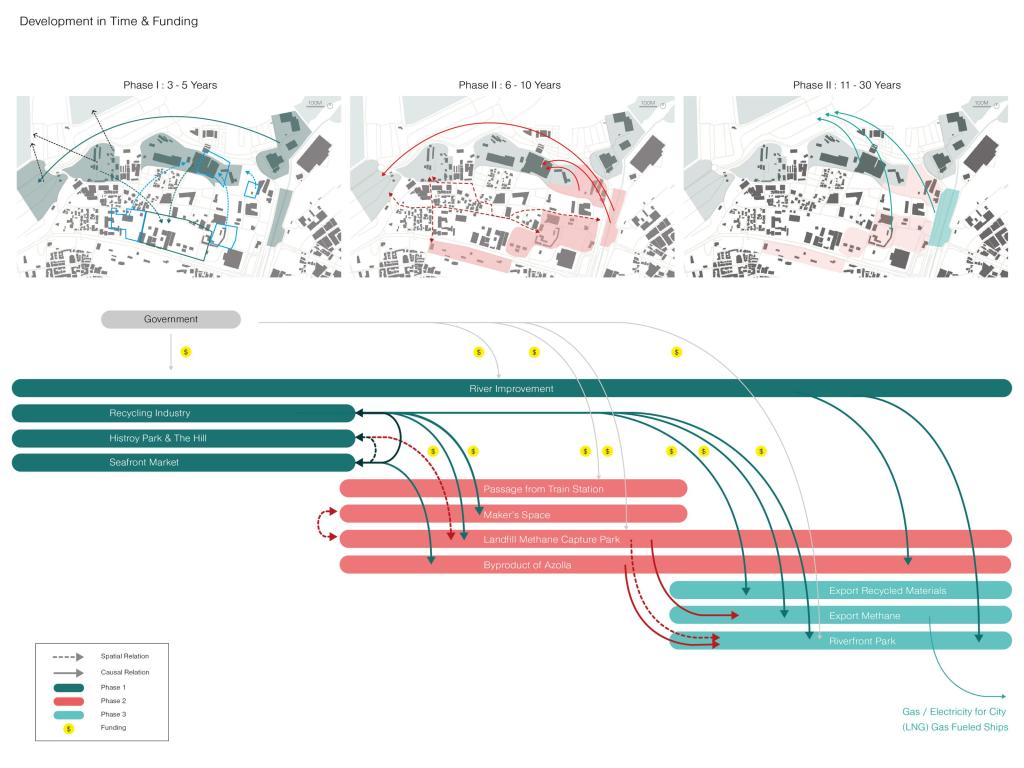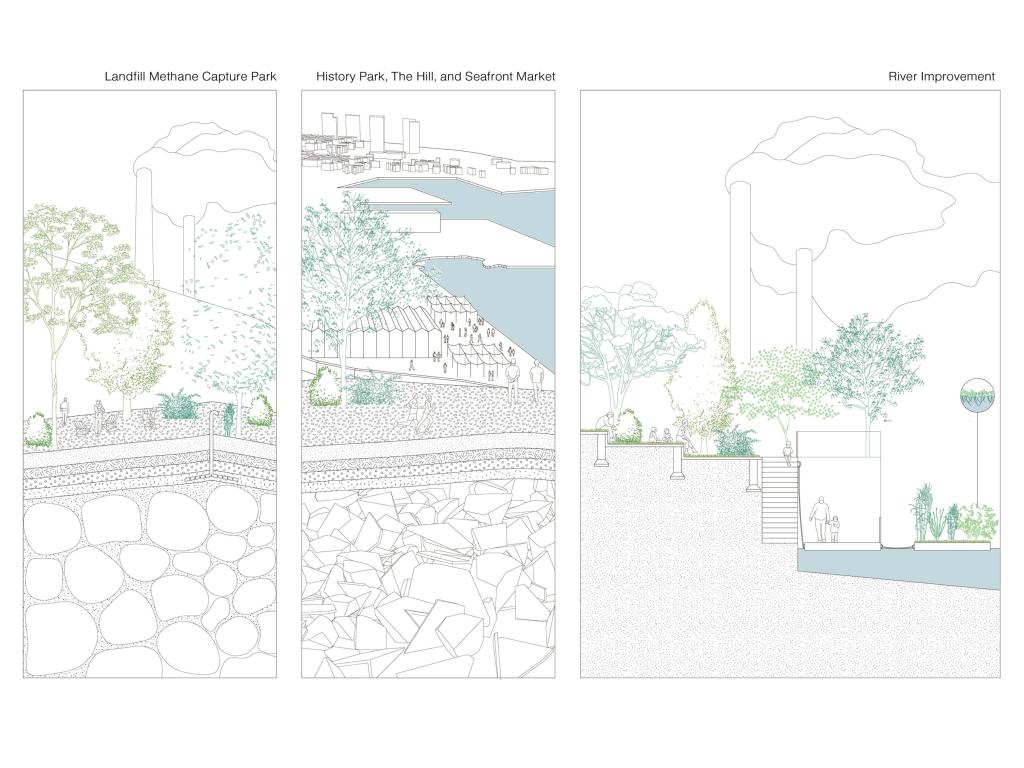Karantina with 3S’es: Sustainability, Sociality and Sentiment
Hsiu-Ju Chang, Kianu Goedemond, Laura Wiedenhöver, Georgia Xypolia
Karantina with 3S’es proposes to repurpose Karantina as a green engine of Lebanon by developing an economic, social and spatial infrastructure for producing and recycling sustainable materials, transforming the river into green aorta and introducing the marketplace as trading platform.
The project develops over three interwoven trajectories. First, it brings to Karantina NGOs that recycle waste, sort it at the local source and rewarded, and create jobs. Recycling provides materials for sustainable products in the makers district where artists and galleries also flourish. The landfill produces methane and is captured, reducing greenhouse gas emissions. Combined with methane from paper and compost it heats housing, powers transport and produces electricity sustainably.
Second, this project transforms Beirut’s river into an azolla factory. Azolla eats biological waste from upstream, purifies the water and sustains the flourishing aquatic life. The fast-growing plants capture CO2 and is harvested by locals to prevent overgrowth. Harvested azolla is a livestock food and biofuel. To harvest it, pontoons line the river, making an additional pedestrian connection path.
Third, the project addresses the issue of safety and mobility. It proposes to separate heavy traffic from regular traffic and pedestrians’ paths. In this way, transfers become better, safer, more sustainable and more socially interacting. The slower spatial experience creates an improved inclusive social fabric. This focuses attention to Karantina and drives personal improvements. Heavy traffic destinations are near the borders, limiting it to the port, the highway and necessary deliveries inside.
Our vision for Karantina is that it becomes a neighborhood where socio-economic life flourishes, without government corruption and failing confessional democracy. The grassroots movement crosses boundaries of faith and demography. A constructive positive attitude replaces dependency. In this project, Karantina has two parks, half of all city parks, attracting people from everywhere, creating leisure business. The nearby port remains a major local influence and useful gateway. Imports and fishery create a workplace for craftsmen, who spend money locally. Export of metals and sustainable materials generate an inverse flow towards the port. As such, Karantina provides realistic stepping stones towards a greener port, unbound by inflation, poverty and corruption.






